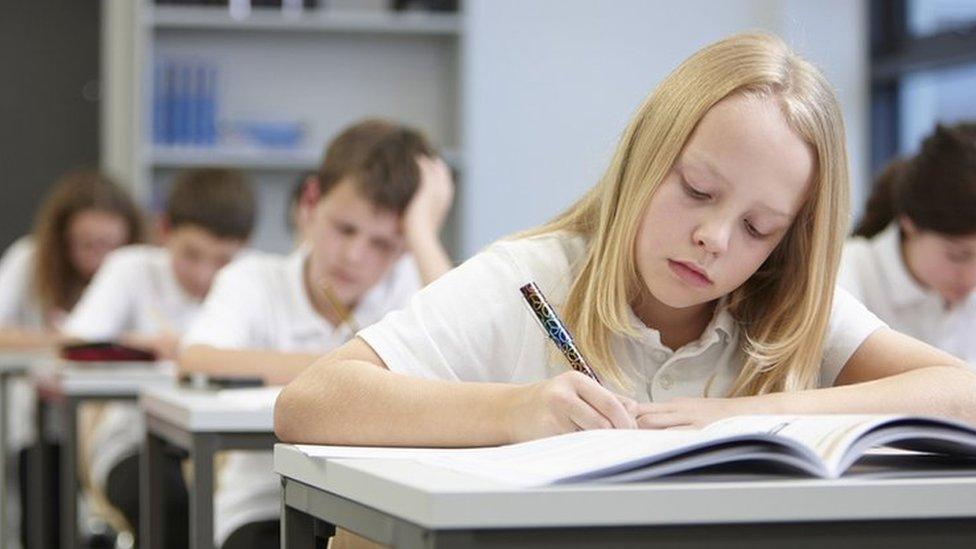Sats results 2023: Reading standards fall in Year 6 tests
- Published
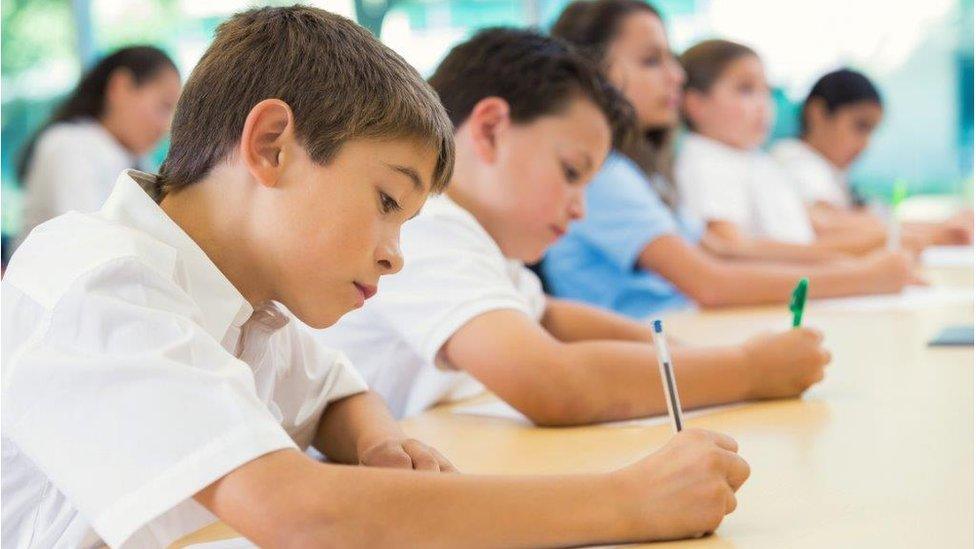
Reading levels among Year 6 pupils in England have fallen, after a controversial Sats paper, which some teachers and parents said was too hard.
Scoring was moderated so that pupils needed fewer marks to reach the expected level. Despite that, fewer pupils achieved that level in 2023 than in 2022.
Standards either increased or remained the same in other individual subjects.
But combined reading, writing and maths levels are still lower than pre-Covid.
This year, 59% of pupils reached the expected level in these three subjects combined - compared to 65% in 2019.
By 2030, the government wants 90% of children leaving primary school to reach the expected standards in reading, writing and maths.
Results show 73% of pupils met the expected standards in reading, down from 75% in 2022.
Concerns were raised about the length and complexity of this summer's reading paper, the contents of which were first seen by the BBC.
One question asked 10 and 11-year-olds to find a similar word to "eat" in a passage that contained both "consume" and "feeding" - although, according to the mark scheme, both answers were acceptable.
The scoring of this year's reading paper suggests it was harder than last year's. Just 24 marks were needed to meet the expected level, compared with 29 in 2022.
The Standards and Testing Agency deemed the relative difficulty of the reading paper to be appropriate.
The Department for Education (DfE) says its tests are developed over three years, and this year's papers were trialled with around 1,000 pupils.

'She's bound to be disappointed'
By Alice Evans

Recruitment manager Victoria Williams says she was "devastated" that her daughter Georgina had been upset about the reading paper
Victoria Williams's daughter Georgina was one of the pupils who was unable to finish the Year 6 Sats reading paper.
She found out on Tuesday morning that she had scored 108 in reading - comfortably past the 100-mark boundary needed to reach expected standards, but not quite the "magic" 110 score that her school had told her she was capable of.
Her mother says Georgina will be "bound to be disappointed", especially after being "so upset" on the day she sat the test.
The recruitment manager, from Princes Risborough, in Buckinghamshire, said Georgina had told her the paper had been "awful" and that she had sat crying to herself during the test.
"There's this enormous build-up to the Sats, which is debatable sort of how healthy that is," Mrs Williams told the BBC.
"She felt she had let herself down. She couldn't understand why she hadn't been able to finish the paper, because in all the practices she had managed to do so.
"We had to do a lot of reassuring and propping up and reminding her that it's not that important."
Mrs Williams said she was concerned the bad experience might stick with Georgina - "my children don't seem to forget these things" - but hopes fun activities like the end-of-term play are "enough to counter any disappointment".

In other subjects, the proportion of pupils reaching the expected level was:
73% in maths, up from 71% in 2022
71% in writing, up from 69% in 2022
72% in grammar, punctuation and spelling, the same as 2022
80% in science, up from 79% in 2022
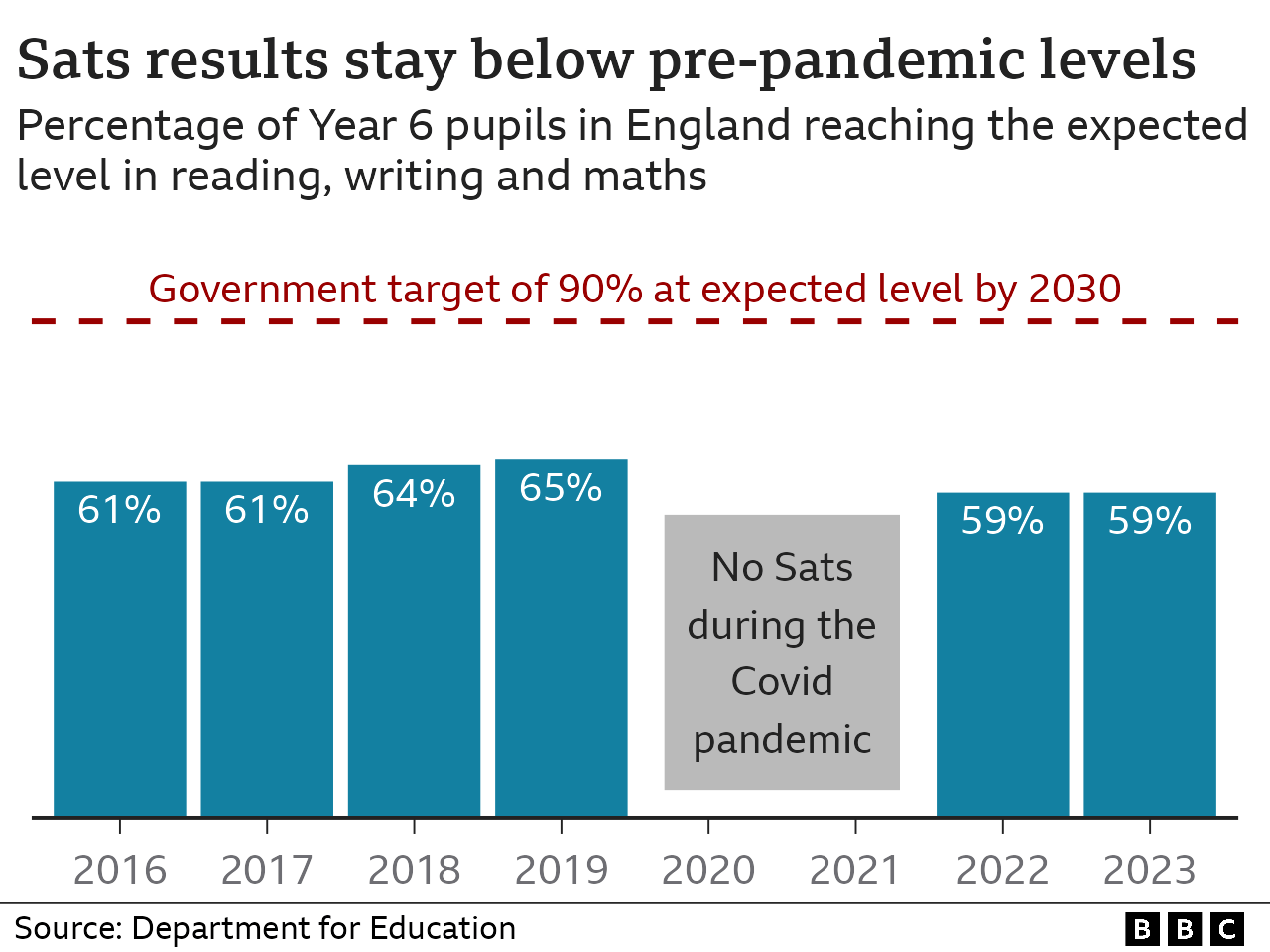
Schools Minister Nick Gibb said it was "encouraging to see attainment levels improving in some key subjects" after the pandemic had disrupted pupils' education.
He said the National Tutoring Programme (NTP) had been "crucial in helping those pupils most in need of support".
Last month, MPs stressed that about 13% of schools in England did not take part in the NTP in 2021-22, and urged the government to take faster and more effective action to help students catch up.
Stephen Morgan, Labour's shadow schools minister, said "children's education [was] paying the price for the failure" of the NTP.
Tiffnie Harris, of the Association of School and College Leaders, said schools were "straining every sinew to improve results" and asked the government to address "the national crisis caused by teacher shortages and inadequate funding".
Paul Whiteman, of the National Association of Head Teachers (NAHT), said Sats were a "snapshot of what a child can do" and it was "time to change the system of statutory assessment".
He added that some school leaders were "rightly frustrated" by problems accessing pupils' results online on Tuesday morning.
Capita, which runs the online system, said it had been "operational, just busy", and urged teachers to be patient.
The NAHT raised concerns about missing and incorrectly marked papers last year. According to the Standards and Testing Agency, external, 7,437 pupils - just over 1% of the cohort - were missing outcomes on results day in 2022.
What are Sats?
Standard Assessment Tests, or Sats, are tests that children take in Year 6, at the end of Key Stage 2. They are national curriculum assessments in English grammar, punctuation and spelling, English reading and maths.
The government's Standards and Testing Agency says the purposes of Sats tests are to:
help measure pupils' progress
identify if they need any extra help in certain areas
assess schools' performances
produce national performance data.
Children also sit Sats in Year 2, at the end of Key Stage 1.
Related topics
- Published18 May 2023
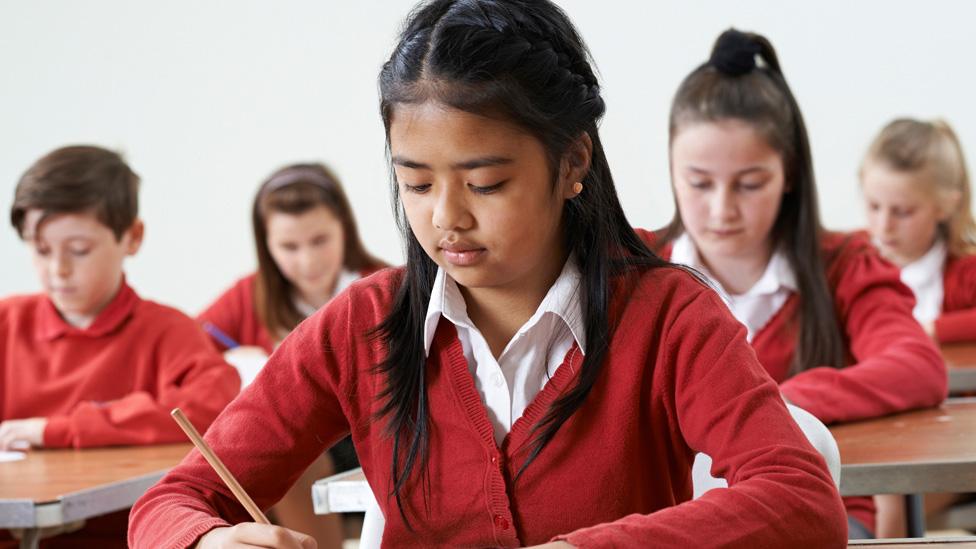
- Published16 May 2023
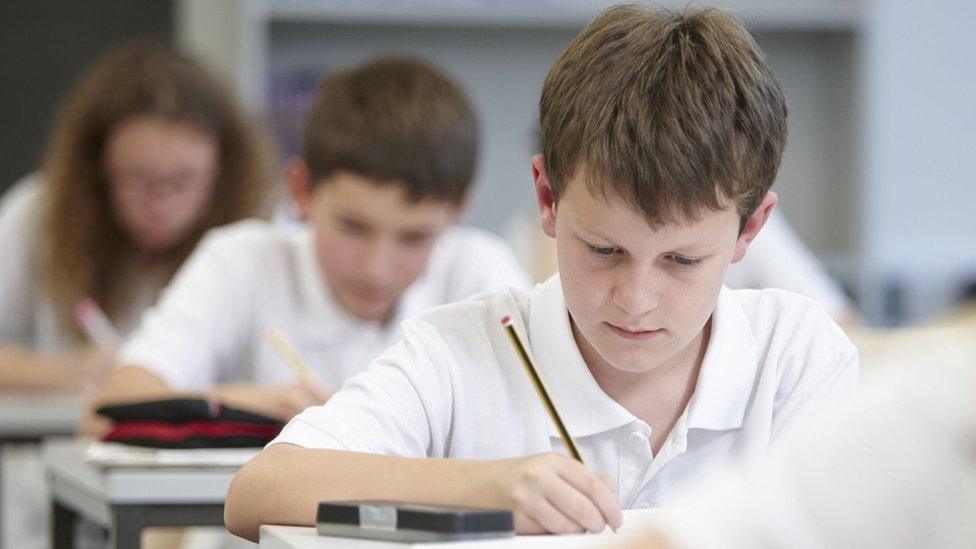
- Published16 May 2023
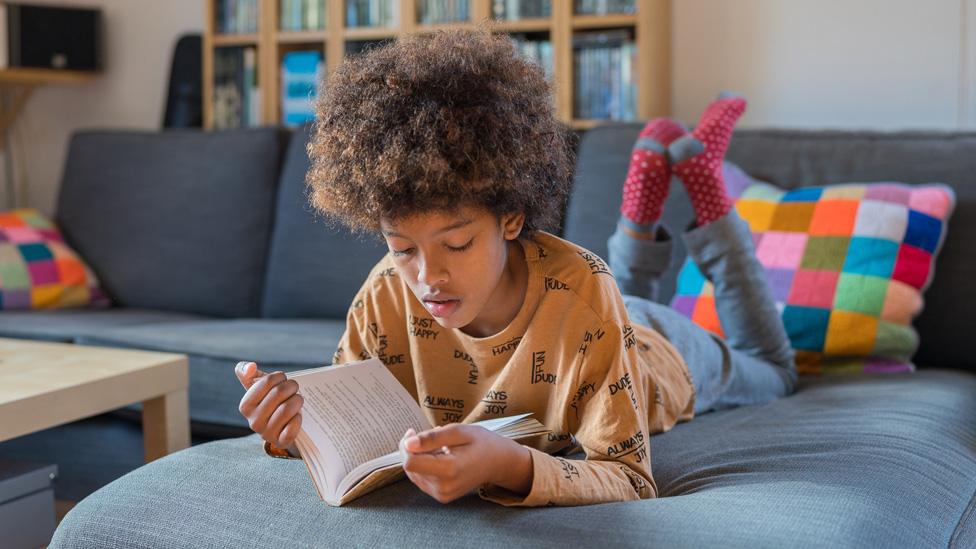
- Published5 July 2022
